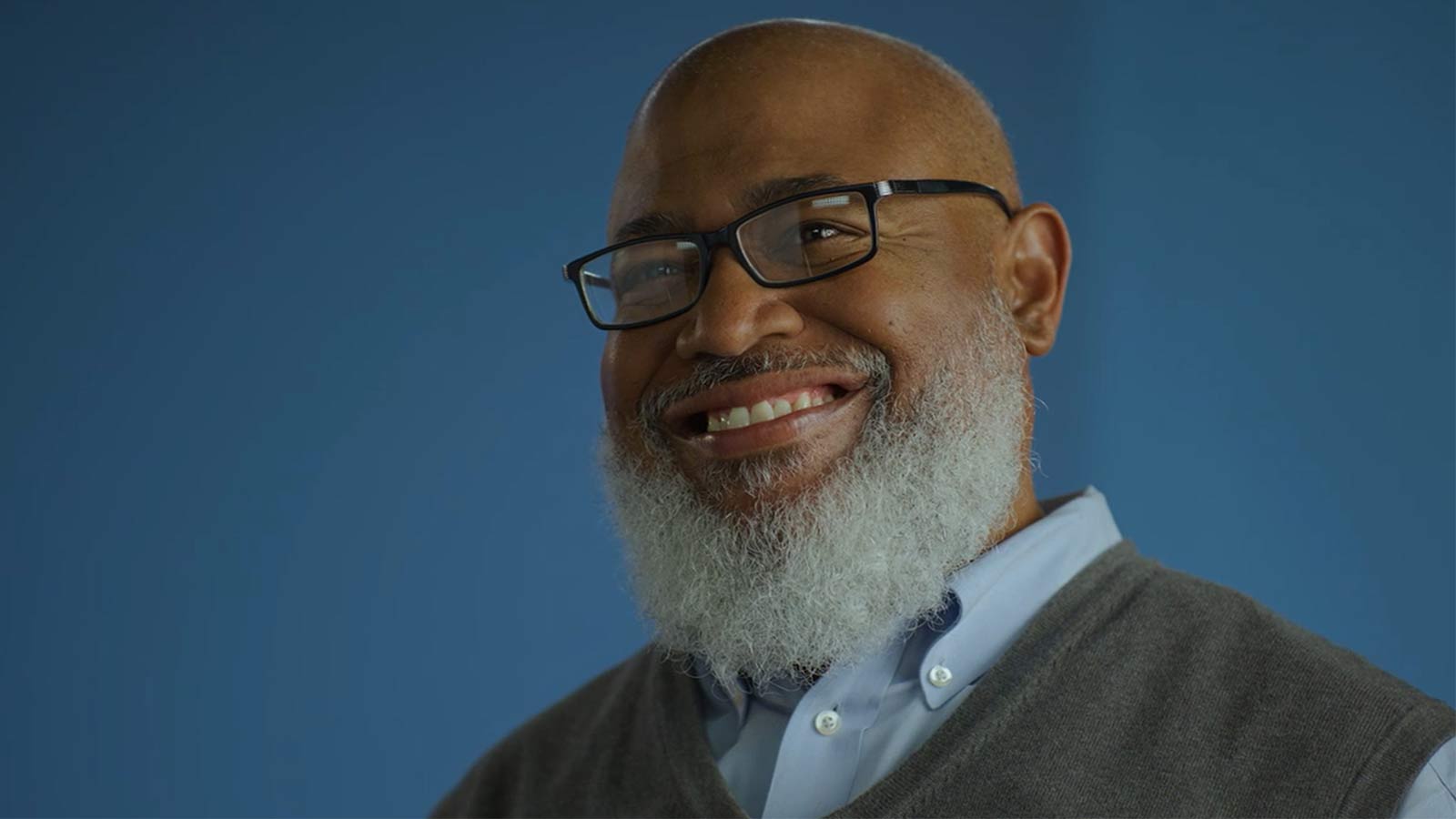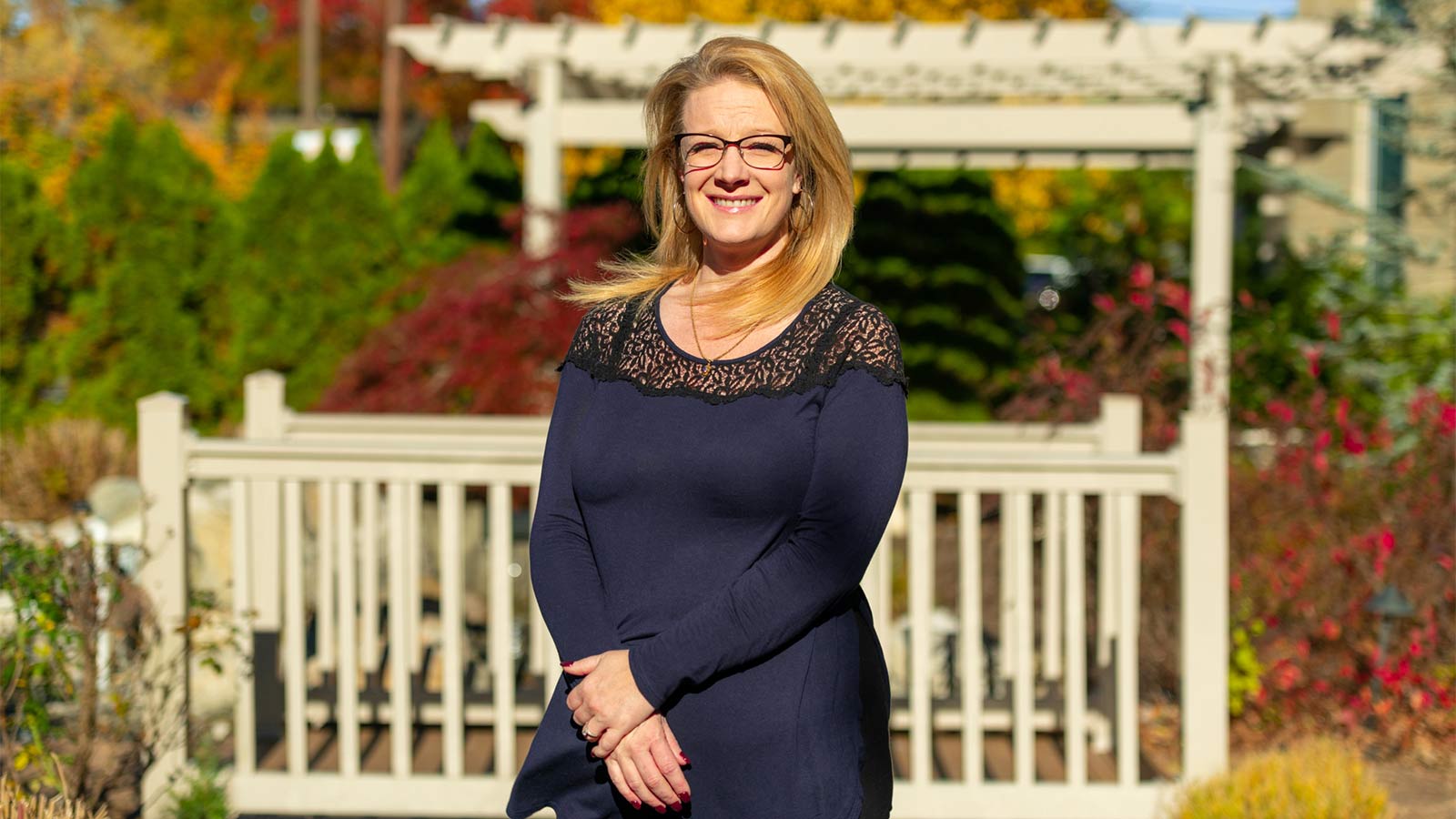Overcoming Addiction, Philip Now Sees More Positive Side to Life
Virtua’s Medication for Addiction Therapy program provided the medical and behavioral therapy Philip needed to help him overcome his reliance on opioids.

Philip Alisauskas was 18 and working as a machinist when he hurt his back on the job. A doctor prescribed a drug, oxycodone, to relieve the pain.
After three years, Philip’s doctor stopped renewing his prescription, so he turned to illegal opioids, like fentanyl and heroin. His downward spiral continued following the death of a loved one in 2020, and he overdosed several times on the drugs.
“I really needed to find some help,” Philip said. “Either I was going to die, or I needed to get help.”
In January 2022, he connected with Virtua’s Medication for Addiction Treatment (MAT) program, which uses medicines and behavioral therapy to help people recover from substance use disorders.
“Before there was no end in mind. Just a vicious circle to not be sick or in pain,” said Phillip. “Now, I’ve got goals to progress in my life. There’s definitely more of a positive side.”
“It’s virtually impossible to stop using opioids on your own,” said Lynda Bascelli, MD, primary care physician and addiction medicine specialist. “With help, people get their lives back. They repair relationships. They become employed. They buy homes. They do things they couldn’t when they were trying to maintain an opioid habit.”
Medication and Therapy Reduce Cravings
The program utilizes evidence-based FDA-approved medications, like naltrexone (Vivitrol, Revia) and buprenorphine-naloxone (Suboxone, Sublocade) to help people who use opioids reduce their cravings, manage withdrawal symptoms, and prevent return to use.
“There’s a misconception that we are trading one drug for another. Addiction is a brain disease, and these medications help the brain to heal,” said Dr. Bascelli. “These medications work on receptors in the brain and are highly effective in helping people abstain from opioids or alcohol, or to reduce harm from their continued use.”
The medication is often paired with therapy. Both services are offered at the same location. Individuals also can be referred to more intensive therapies, if needed.
“Therapy is not a mandatory part of treatment because some people are skeptical of it and we do not want to create any barriers that might prevent them from continuing treatment,” said Dr. Bascelli. “However, we do know that medication and therapy work better together than either one does alone.”
Philip has been taking Sublocade and Suboxone to reduce cravings and sees a therapist to treat his depression.
“I never thought I’d make it to 40,” he said. “I’m still adjusting to life off of drugs. I feel bad for a lot of things I’ve done.”
Nonjudgmental Care
Treatment plans are catered to the individual’s personal goals.
“Success looks different for every individual,” said Dr. Bascelli. “We provide a judgment-free zone. If someone, despite their intent, continues to use opioids, we will continue to treat them. We want to reduce their risk of harm from continued substance use, like hepatitis C or HIV transmission, or overdose and death.”
Philip knows he has a long way to go after so many years of addiction. But he has reconnected with his family and hopes to eventually return to work.
“I never thought I would clean up,” he said. “For them to get it into my head that I can clean up, is a huge help. I thought I was wasting everyone time, but they stuck with me and helped me out.”
Get on the Path to Addiction Recovery
Virtua’s Medication for Addiction Treatment program uses medicines and behavioral therapy to help people recover from opioid, alcohol, and other substance use disorders. Call 856-322-3110 to schedule an appointment.
There's So Much More to Explore
Discover expert insights, inspiring stories, health tips, and more by exploring the content below!
Is an At-Home Colon Cancer Test a Good Alternative to a Colonoscopy?

How Do You Manage the Side Effects of Weight-Loss Medications?
A Woman’s Four-Step Guide to Fight Back on Back Pain

What You Need To Know About Carpal Tunnel Syndrome

The Truth About Menopause, Weight Gain, and Belly Fat

Shedding Light on Lesser-Known Menopause Symptoms and Solutions

Debunking The Myths About Vaginal Dryness
Inside Look at Blood Vessels Aids PAD Treatment
Denise Davis: Pay Attention to Your Heart Health

What You Need To Know About Stroke Treatment

Prayers Answered: Pastor Gatling on New Mission After Kidney Transplant

10 Smart Ways to Manage Your Diabetes

Signs You May Have Chronic Kidney Disease

5 Essential Winter Foot Care Tips When You Have Diabetes

Sweet Music: Trust, Teamwork Save Justin from Heart Attack

Complex Heart Surgery Nets James a Lifelong Friend

Hepatitis C Kidney Transplant a Blessing For Lee Manns
Special Delivery Organ Transplant Gives Amazon Employee Second Chance

7 Reasons Why You Want Your Surgeon to Be an Expert in Robotics

Colitis Symptoms Under Control, Jennifer Is ‘Living My Best Life’

How Do I Care for a Wound that Won't Heal?

Five Back Pain Risk Factors That You Should Know

Is My Back Pain Normal, or Is It Spinal Stenosis?

Robotic Hernia Surgery Combines Innovative Techniques With Faster Recovery Times

How Does Breast Density Affect Your Mammogram?

Menopause: New Insights Into the Power of Hormone Replacement Therapy
Signs You Should Get Treated For Vein Problems

One New Heart Valve Saves Two Lives in the Tritten Family
What You Need to Know About Heart Failure
Lung Valve Surgery Relieves COPD, Emphysema Symptoms

Lung Screening, Robotic Technologies Get Pat Kicking Up Her Boots Again

Breast Cancer Diagnosis Inspires Catherine to Help Others

Jasmine’s On-Air and Pain-Free After Gallbladder Surgery

When Should I See a Doctor About My Knee Pain?

Quick Action Leads to Jesse's Recovery From Stroke

A Non-Athlete’s Guide to Shoulder Overuse Injuries
Shoulder problems aren’t limited to athletes. Virtua orthopedic surgeon Sean McMillan, DO, explains shoulder overuse injuries and prevention in this article.

A Non-Athlete’s Guide to Shoulder Overuse Injuries

Wide-Awake Hand Surgery Speeds Recovery, Puts Control in Patients' Hands

South Jersey Veteran Thrives After Cross-Country Kidney Donation

Five Mindfulness Tips That Can Help Heal Your Heart

3 Ways to Avoid Knee Pain

When Should I See a Doctor for My Hip Pain?

When Should I See a Doctor About My Shoulder Pain?

Is My Back Pain Normal, or Is It Sciatica?

Is My Back Pain Normal, or Is It a Herniated Disk?

When Is It Back Pain, and When Is It Something More?

Watchman Heart Device: a Technological Breakthrough for Blood Clot Prevention

Albert's Emergency Cardiac Surgery Is a 'Story of a Lifetime'

What Can I Do Right Now About My Aching Back?

How Do I Get Rid of This Back Pain for Good?

Can Your Gut Health Affect Your Heart?

When Should I Be Worried About My Neck Pain?
Advanced Heart Failure Therapies Get Bernadine Back to Full Speed

Sarah Wins Back Her Health After Crohn's Disease Diagnosis

Overcoming Addiction, Philip Now Sees More Positive Side to Life
Firefighter's Successful Lung Cancer Care at Virtua
A Lung Screening Put Teresa Back in the Race

A Breast Self-Exam Saved Kristen's Life

Early Treatment is Best to Relieve Hemorrhoid Symptoms

The Top 10 Foods For A Healthy Diabetes Diet

Keeping the Beat: Advanced Heart Surgery for Aortic Aneurysm

Are You At Risk For Chronic Kidney Disease

Local Pastor Makes Kidney Health Mission of Ministry
What’s the Difference Between Type 1 and Type 2 Diabetes?

Is This the Right Time in Your Life for Bariatric Surgery?

All for Bear: Dan Loses Weight to Be His Son’s Kidney Donor

‘Astronomical Changes’: Brain Stimulation Therapy Lifts Ashley’s Depression

Augmented-Reality Surgery Has Bobby Back on Stage, Rocking His New Hip

Hyperbaric Wound Therapy Puts Joette Back in Motion

Robotic Hernia Repair Renews David's Active Lifestyle

